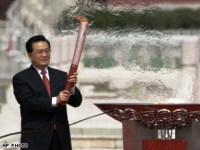Fanning the flames
 Would an Olympic boycott really inspire China to improve its human rights record and its dealings with Tibet? Or would it make things worse, asks Nick Young
Would an Olympic boycott really inspire China to improve its human rights record and its dealings with Tibet? Or would it make things worse, asks Nick Young
Tibet’s Himalayan neighbours in Bhutan and Nepal are beginning to build political institutions better fitted to the 21st century, and there is no doubt that Beijing should renegotiate its relationship with Lhasa in keeping with this zeitgeist.
But would an Olympics boycott advance this process or, indeed, advance human rights in China generally? Almost certainly not. Humiliating the government of China is, in this instance if not always, a less astute tactic than campaigners suppose, and is likely to prove counterproductive.
China expected the Olympics to signal the end of a long era of humiliation that began 170 years ago with the Opium Wars. By 2000 it seemed that China had at last emerged from the shadows of western bullying, Japanese invasion, civil war, internecine political struggle and failed development. The political elite saw hosting the Olympics as a celebration of this renaissance. They will take efforts to spoil the Games as a sign that, rather than being ready to accommodate China’s peaceful rise, the west is determined to slap China back down the development ladder.
(more…)
